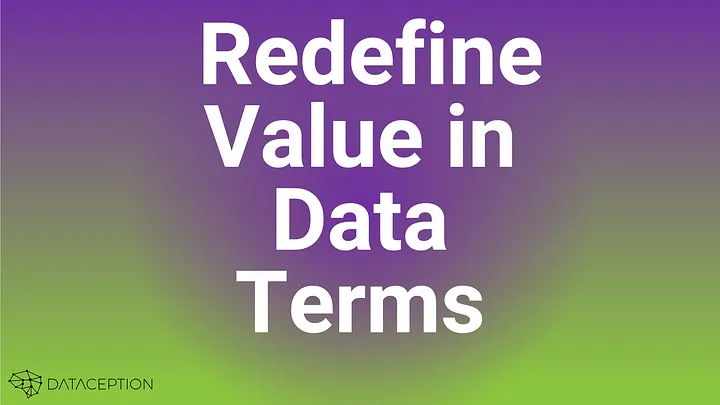Beyond Buzzwords: Unpacking the True Potential of Data in Business
In the ever-evolving landscape of data management and analytics, the term “data product” has emerged as a cornerstone concept, underpinning countless discussions and debates. Yet, as we delve deeper into the nuances of what constitutes a data product, we find ourselves entangled in a web of competing definitions and interpretations that cloud our understanding and hinder effective communication. It’s time to step back and reassess our language, to ensure it reflects the realities of our work and the value we aim to deliver.
The Problem with “Data Products”
At the heart of the matter is the application of the term “product” in contexts where it may not fully align with traditional business and product management principles. This misalignment is not trivial; it impacts how we conceptualize, manage, and communicate about data initiatives. The term “data product” carries with it connotations of commercial viability, market demand, and a lifecycle managed through product management processes. Yet, many data initiatives within organizations do not fit this mold. They are not created for direct sale, nor do they always follow the structured lifecycle that product management implies. Instead, their value often lies in enhancing decision-making, operational efficiency, or the development of other services.
A Call for Terminological Precision
The push for terminological precision is more than an academic exercise; it’s a practical necessity. Terms like “data containers,” “data assets,” or “data modules” might offer a clearer and more accurate description of these initiatives. This clarity is crucial for fostering effective communication among data professionals, business stakeholders, and customers. By adopting language that accurately reflects the nature of our work, we can set realistic expectations, facilitate cross-functional collaboration, and better align our initiatives with organizational goals.
Distinguishing Value Creation from Commercial Viability
One of the critical distinctions that need to be made is between value creation and commercial viability. Many data initiatives create immense value without ever being packaged for sale. This distinction is crucial, as it impacts how these initiatives are managed, governed, and valued within an organization. By moving away from the term “product,” we can better capture the diverse ways in which data initiatives contribute to organizational success, beyond direct market transactions.
Enhancing Cross-Domain Communication
The debate over the term “data product” also highlights a broader challenge within the data community: how to conceptualize, manage, and value data initiatives. A shift in terminology could facilitate clearer communication and cooperation among technical, business, and product stakeholders. Aligning with the bounded context principle from domain-driven design, adopting a new term could mitigate confusion and enhance collaboration across domains, leading to more effective data initiatives.
Path Forward? Let’s move beyond this!
The fixation on the term “data product” has led us into a semantic quagmire that detracts from the real challenges and opportunities in data management and analytics. It’s time to redefine our language to better reflect the value that data initiatives bring to organizations. By adopting terms that accurately describe these initiatives, we can improve communication, align with organizational goals, and foster a more nuanced understanding of data’s strategic role.
Let’s move beyond discussion of what are “data products” and embrace a terminology that captures the true essence and value of our work in the data realm.

The Data Conversation: Beyond the Buzzwords
Let’s ditch the endless discuss on buzzwords and have a real conversation about the true potential for data in business!
Join the discussion: share your thoughts on how to better describe data initiatives that drive value beyond sales.

